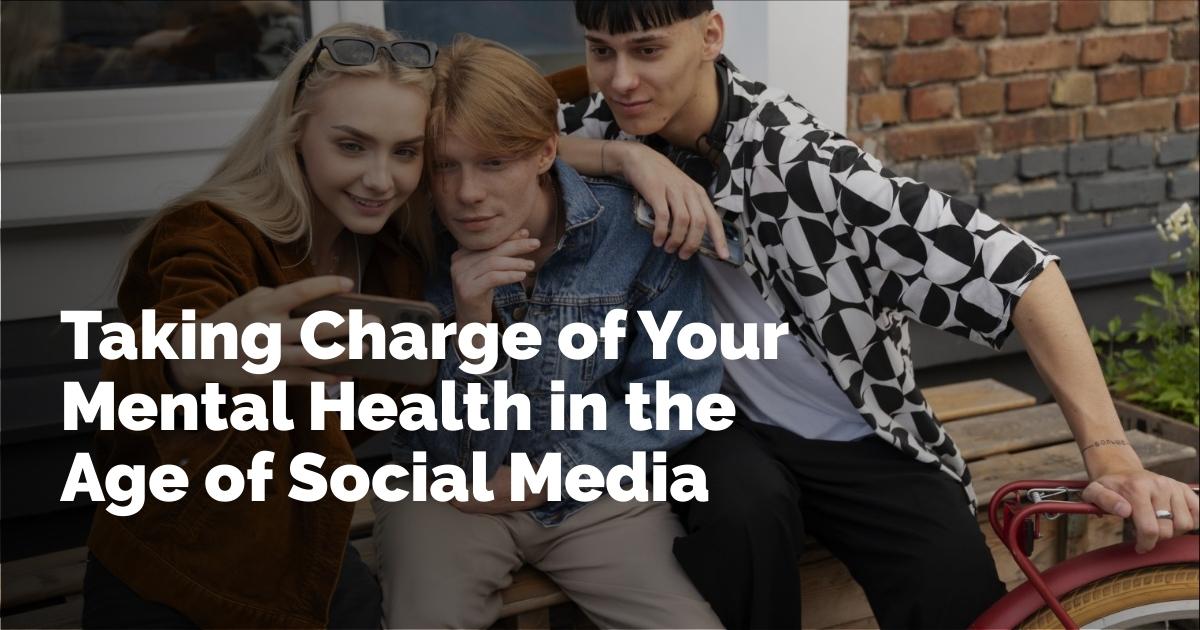Navigating the Digital World Without Letting It Control You
In today's digital age, especially if you're part of Gen Z, social media has become a seamless part of life. It's a powerful tool for connection, self-expression, and staying informed. Yet, the endless scroll on platforms such as Instagram and TikTok can often negatively impact mental health, self-esteem, and body image. So, how can one maintain control over their social media experience instead of allowing algorithms to dictate self-perception?
The Good, The Bad, and The Stressful
Social media can serve as a platform for fun and connection, but its darker side is linked to considerable mental health challenges, including anxiety, stress, and body image issues. Studies reveal that excessive social media usage is associated with lower overall well-being and heightened psychological distress, particularly in regions where it is heavily integrated into daily life. One of the most significant challenges faced by users is the pervasive culture of comparison. People are repeatedly exposed to perfectly curated and filtered content, creating an unrealistic standard of beauty and success that can lead to feelings of inadequacy. Constant exposure to beauty-centric content on social media is correlated with body dissatisfaction and even disordered eating behaviors. Interestingly, research suggests that active participation—such as posting and commenting—can sometimes prove more detrimental than passive scrolling.
How Social Media Shapes Identity
Beyond being a source of entertainment, social media plays a crucial role in identity exploration and self-presentation, particularly for young individuals. Platforms like Instagram and TikTok provide avenues for identity exploration but simultaneously fuel fear of missing out (FOMO) and social comparisons. This identity shaping can sometimes lead to increased anxiety as individuals navigate the pressures of maintaining a certain online persona.
Taking Back Control: Social Media Survival Guide
To enjoy a healthier relationship with social media, it isn't necessary to quit platforms altogether. Instead, adopting certain strategies can empower users to reclaim their digital spaces:
-
Think Before You Believe: Not everything presented online is real. Developing the ability to critically analyze content, especially beauty and lifestyle posts, is vital for protecting mental well-being.
-
Understand the Algorithm: Social media feeds are not random. Platforms use algorithms to keep users engaged, often perpetuating unrealistic beauty standards. Recognizing this can help users engage with content more consciously.
-
Fact-Check Everything: The rapid spread of misinformation means that fact-checking becomes crucial, particularly with popular beauty and health trends. Ensuring information is sourced from credible places can prevent the adoption of misleading advice.
-
Be Mindful About What You Post: The content one shares affects others. Intentional and thoughtful posting can contribute towards a healthier online environment.
-
Practice Digital Empathy: It's important to remember that real people are behind each profile. Cultivating digital empathy can help reduce instances of cyberbullying and encourage positive interactions.
-
Balance Online and Offline Life: Social media isn't a substitute for real life. Participating in offline activities strengthens self-confidence and provides a sense of authenticity beyond digital interactions.
-
Recognize Media Manipulation: Awareness of media manipulation techniques, like filters and photoshop, helps mitigate their impact on self-esteem.
Social Media and Mental Health: How to Stay in Control
Social media is a tool with potential for both constructive and detrimental influence. The key to maintaining a healthy online presence is conscious engagement—using social media to support mental health and personal growth rather than allowing it to undermine self-worth.
The Bottom Line
Although social media is not inherently detrimental, its influence depends on how it's used. By taking proactive steps to manage our engagement, individuals can create a digital environment that uplifts rather than depletes. The evolving nature of social media provides an opportunity for users to shape an empowering space that enhances, rather than detracts from, one's well-being.
출처 : Original Source

